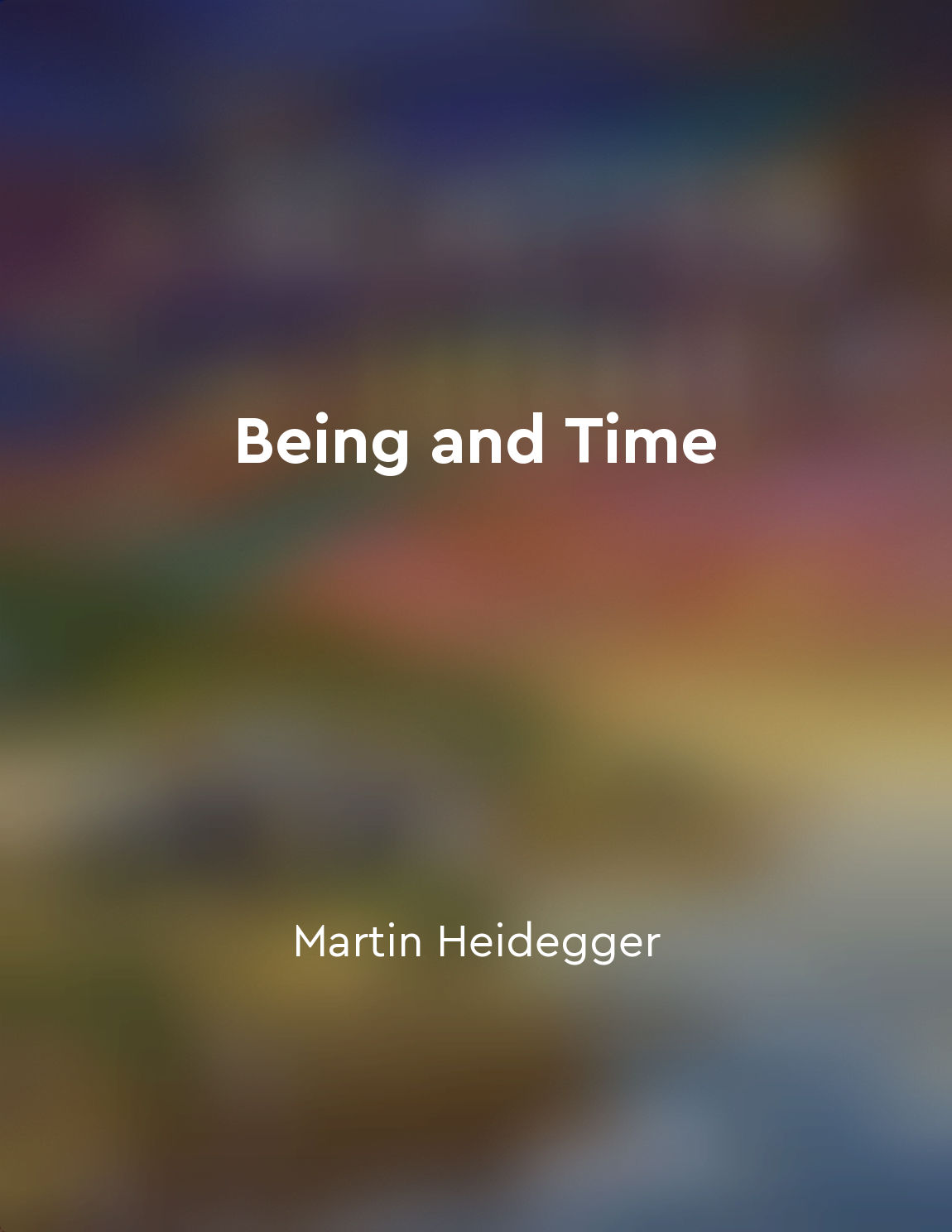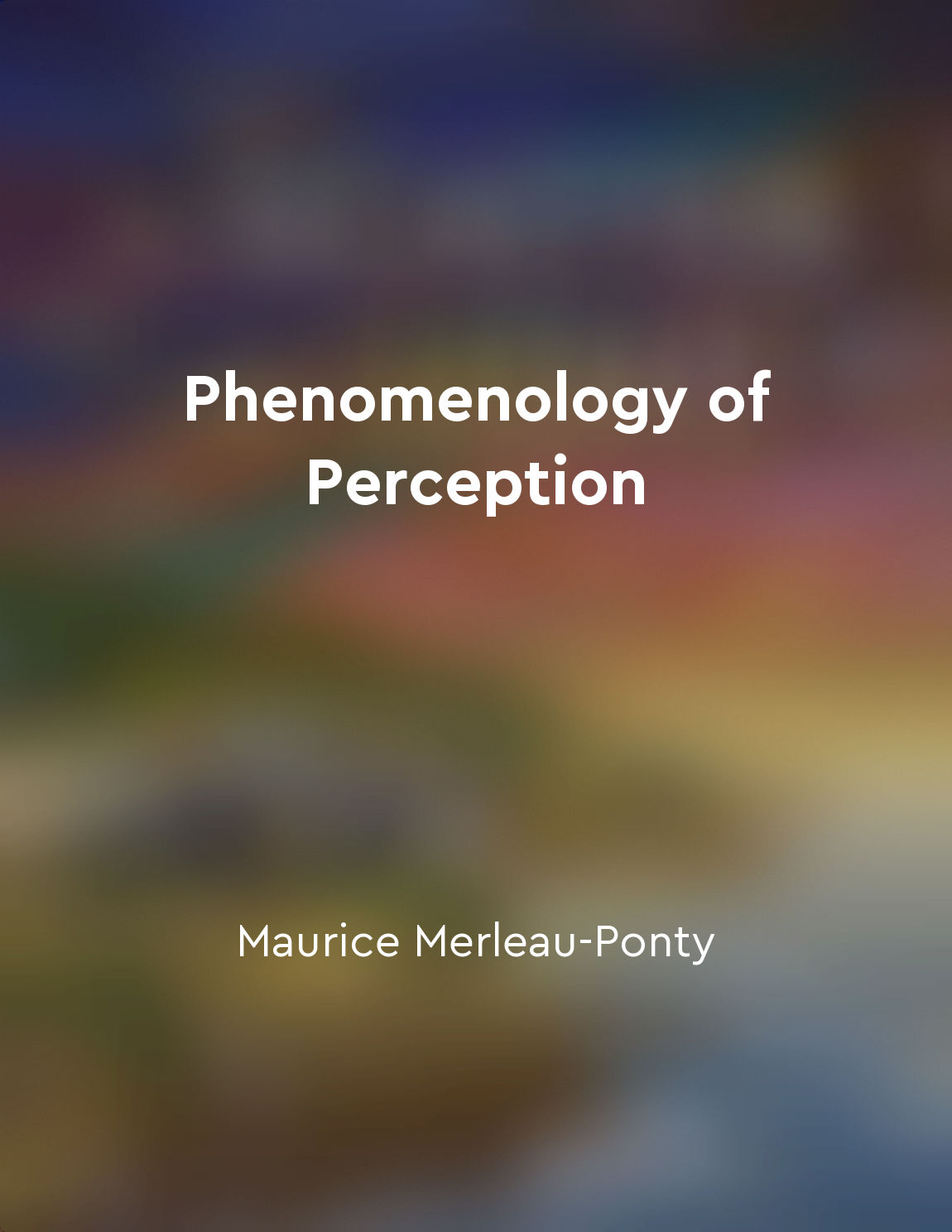Understanding of self deepens from "summary" of The Man Who Wasn’t There by Anil Ananthaswamy
The idea that our understanding of self deepens is a common theme in the exploration of consciousness. As we delve into the nature of our minds, we begin to realize that the self is not a fixed entity, but rather a dynamic and ever-changing construct. This realization can be both liberating and unsettling, as it challenges our preconceived notions of who we are. In "The Man Who Wasn’t There," Anil Ananthaswamy takes us on a journey through the various ways in which our sense of self can be altered or even shattered. Through a series of thought-provoking anecdotes and scientific explanations, he demonstrates how the self is not as solid and concrete as we might believe. One of the key ideas that Ananthaswamy explores is the concept of the "ego tunnel." This refers to the idea that our sense of self is like a tunnel through which our perceptions and experiences flow. When this tunnel is disrupted or altered in some way, our understanding of self can be profoundly affected. Ananthaswamy also delves into the phenomenon of "disembodiment," in which individuals feel a sense of detachment from their physical bodies. This can occur in a variety of contexts, such as during intense meditation or under the influence of certain drugs. In these moments of disembodiment, our usual sense of self can dissolve, leading to a deeper understanding of the fluid nature of identity.- Ananthaswamy challenges us to reconsider our assumptions about the self and encourages us to embrace the idea that our understanding of self is constantly evolving. By recognizing the impermanence and malleability of the self, we can cultivate a greater sense of empathy and compassion towards ourselves and others. Ultimately, the journey towards self-understanding is a complex and multifaceted one, but by embracing the uncertainty and fluidity of the self, we can deepen our connection to the rich tapestry of human experience.
Similar Posts
Practice nonviolence in thought, speech, and action
The concept of practicing nonviolence in thought, speech, and action is a fundamental teaching in Buddhism. It is based on the ...

Existential freedom entails taking responsibility for our choices
Existential freedom is not just a theoretical concept; it is something that we live out in our everyday lives through the choic...
Emotional intelligence is essential for personal growth
Emotional intelligence plays a crucial role in our personal growth journey. It allows us to understand and manage our own emoti...
Face your fears with courage
When fear arises within you, your instinct may be to avoid it at all costs. However, this avoidance only gives your fear more p...
Human evolution is an ongoing process
In the course of thousands of years, the human species has undergone many changes. These changes are not simply a thing of the ...
It is a guide in navigating the complexities of existence
The concept presented can be seen as a guiding light amidst the intricate web of existence. It serves as a roadmap for individu...
Emptiness at core of self
The idea that there is an emptiness at the core of the self is a profound and unsettling concept that challenges our very under...
Invisible man reflects on existence
The invisible man in "The Man Who Wasn’t There" grapples with profound questions about his own existence. Struggling to find me...

Consciousness is always embodied
At the heart of the phenomenological investigation lies the profound recognition that consciousness is inherently intertwined w...
Finding inner peace
Finding inner peace is not about escaping from the world or suppressing emotions. It is about experiencing a deep sense of tran...

